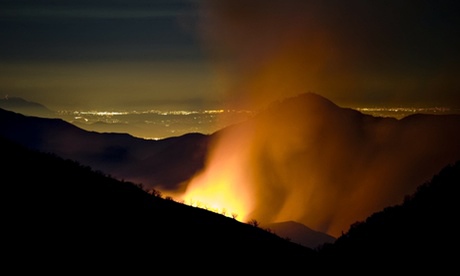
A book that changed my life? Riffling through those thousands of index cards in one's brain, which does one flip out when asked the question? One thinks of Coleridge's recollection of his epiphanic first encounters with the printed word, in Biographia Literaria. "At six years old," he records, "I remember to have read Belisarius, Robinson Crusoe and Philip Quarll."
But then, lowering the wow factor a fraction or two (Belisarius! At six!) , the young prodigy came across The Arabian Nights. It must, historically, have been the 1706 Grub Street version – not the bowdlerised Victorian editions. One story in particular, "the tale of a man who was compelled to seek for a pure virgin" (The Sheikh's Virgin Bride), gave young Sam night terrors. But he read and read, with "fearful eagerness". And thus, one may plausibly surmise, was the long road to Xanadu and the laudanum flask embarked on. His life was changed.
Sadly slower off the mark than Coleridge, I read a volume of Raymond Chandler's short stories, Trouble is My Business, when I was 17. Someone left it lying round the house. It was in the dark green livery to which Penguin consigned its detective and crime fiction – items not quite worthy of the imprint's red covers, but no less the cream of the genre's cream.
The collection itself is a dry run for the Philip Marlowe novels, centred on a precursor private eye called John Dalmas. The plots are, as is usual with Chandler, beyond feeble. But the writing is shot through with that "cadence" which he saw as the necessary quality of hard-boiled crime fiction. It was, specifically, the opening paragraph of the opening story, Red Wind, that gripped me at the time, and would haunt me for decades to come. I honestly think those words exercised a magnetic pull on my future.
The Dalmas stories are not top-rated by Chandlerians, but they all know, and relish, that first paragraph. It is quintessential, once read, never forgotten: "There was a desert wind blowing that night. It was one of those hot dry Santa Anas that come down through the mountain passes and curl your hair and make your nerves jump and your skin itch. On nights like that every booze party ends in a fight. Meek little wives feel the edge of the carving knife and study their husbands' necks. Anything can happen. You can even get a full glass of beer at a cocktail lounge."
It was 1955 when I first read those words. They burned into my sensibility like a brand. The age of austerity had cramped all teenage joy in life. You want to know how dire it was, culturally? The number one UK record of that year was Tennessee Ernie Ford's Give Me Your Word. One could sense what Harold Macmillan called "the wind of change" coming. It might well gust, liberatingly, over the African continent. It had not yet so much as puffed over Colchester where, as Larkin would put it, my childhood and adolescence were unspent. That "red wind" was as thrilling, and fantastic to 17-year-old me as the yellow brick road had been in my film-going infancy. You get a lot of weather in England, but most of it is grey and face-flannel damp, not red and bone dry. What was the red wind like? A gust from the oven doors of a rather interesting hell, one guessed.
I firmly believe it was that paragraph that drew me, by some deep-buried motivational drive, to find a job, in 1983 (another austere year) in southern California, in the lee of the San Gabriel mountains where the red winds blow. I remained in that job for a quarter of a century. Every weekend I hiked in the San Gabriels. And over them, every few months, would blow the Santa Anas that Chandler writes about.
It was exhilarating and slightly nerve-racking. They normally last a couple of days and barrel in from the Mojave desert, to be further heated by compression, as they swirl, angrily, over the ridges and through the passes. By the time they arrive at the coast – and LA – the humidity is spiralling down to single figures. They are dangerous. It was a Santa Ana that stoked the fire, swirling up the residential canyons like a flamethrower, which destroyed Aldous Huxley's house, and all his papers, in 1961. "Naked I came into this world," he said, stoically echoing Job, "and naked I shall leave it."
The Santa Anas are, often, literally "red" winds; as fiery embers are red. After the catastrophic fires in October 1993 – driven across the chaparral and Jeffrey pines at 60mph by the winds – the hillsides lowering over the west coast glowed, sparked and sporadically flamed for nights from Sierra Madre to Laguna Beach. I would go out, to the foot of Mount Wilson, and look at them for hours, Chandler's words echoing in the back of my mind. A circle had closed, beginning at that first encounter with the image of the red wind, all those years ago.
When you're asked questions along the lines of Kirsty Young's: "And what book will you take to your desert island?" the temptation is to choose something that will make you look good. Second-rate Chandler is not a commodity to conjure with, if you want to play literary one-upmanship. But that story, more specifically those words, changed the course of my life. And I'm damned glad they did.
John Sutherland's latest book is How to Be Well Read: A Guide to 500 Great Novels and a Handful of Curiosities

